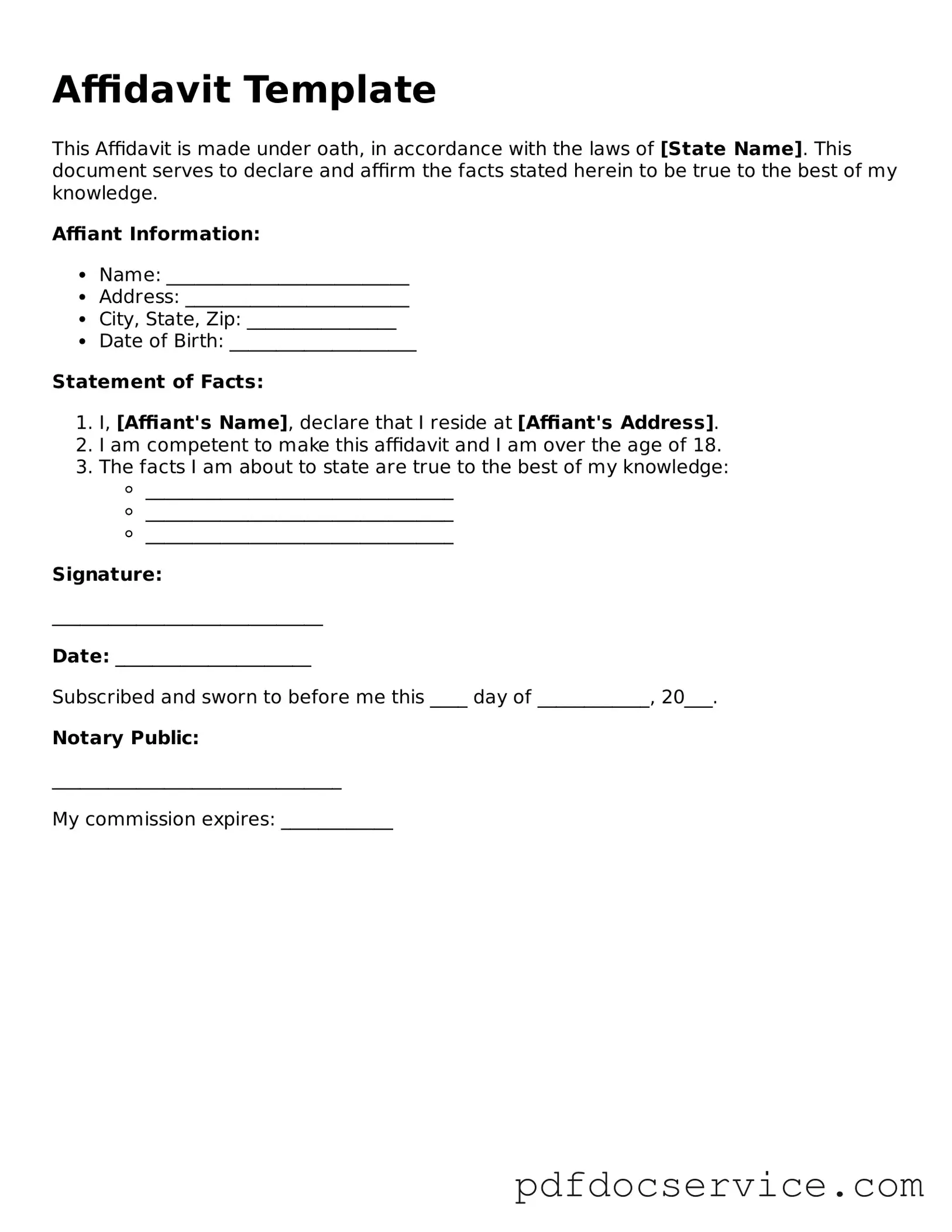Blank Affidavit Form
An Affidavit is a written statement confirmed by oath or affirmation, used as evidence in legal proceedings. This form serves to provide a clear account of facts, ensuring that the information presented is truthful and reliable. Understanding how to properly complete and utilize an affidavit is crucial for anyone involved in legal matters.
Open Affidavit Editor

Blank Affidavit Form
Open Affidavit Editor

Open Affidavit Editor
or
Get Affidavit PDF
Finish the form now and be done
Finish Affidavit online using simple edit, save, and download steps.